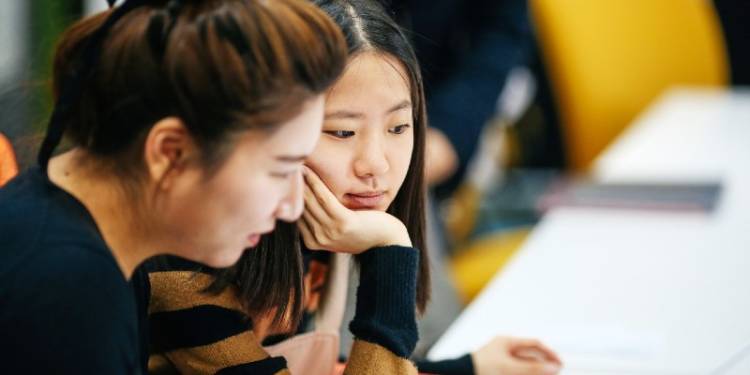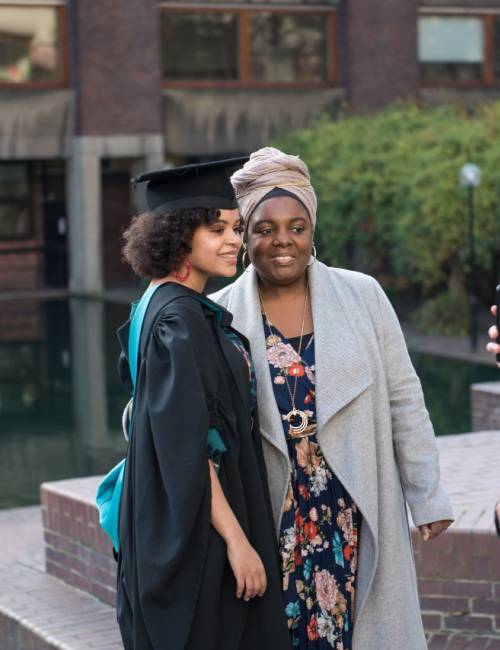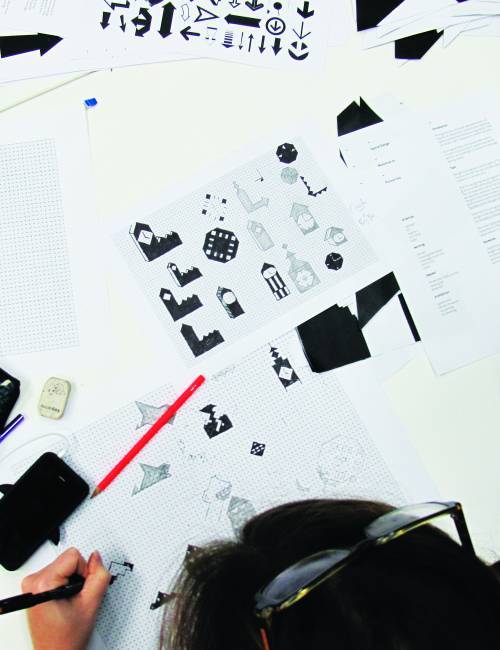Parents' guide to university applications and UCAS
Helping your child apply for a university place

Want to help your child through Clearing?
The university application process can feel a little daunting for students and parents alike, but it shouldn't be. Here is our parents' guide to university applications, UCAS, portfolio advice and more.
Understanding the UCAS process
Universities and Colleges Admissions Service (UCAS) is the central organisation which manages all university applications in the UK. To those who haven't gone through the application process before, it may seem confusing. But don't despair, with a bit of guidance your child will breeze through their application.
Before applying
Explore your child's university options
Students can choose a maximum of five different courses on their UCAS application, so it's important that they choose wisely. Those five courses can be taught by the same university or at five completely separate institutions.
While some young people have a clear study path in mind, others might need a bit of coaxing to help identify which subject area and career path suits their interests and natural abilities.
Resources such as the National Careers Website can help you and your child understand more about the different career paths available.
Research the courses
Two courses with the same name at two different universities could have a completely different focus. Whereas one might be theoretical in focus, another might have a strong vocational element. As such, it's important to carefully research each course and its curriculum.
Courses have different entry requirements too, so it's important to be realistic about the grades your child is likely to achieve.
The UCAS website is a great tool to research courses, as you can filter by things like location, subject, entry requirements and institution. This makes a great starting point for your research.
Open days
We would recommend that you encourage your child to attend a university open day, as they (and you, if you wish to join them) will get a powerful impression from these initial introductions. They will also provide valuable insight into what the culture and facilities are like.
If you’re coming to the UK from abroad, this may not always be possible, so why not explore using a virtual tour tool or attending a virtual open day event instead?
Remember: Most undergraduate courses start in September or October, and many universities require you to apply a year in advance, so it's important to be organised.
Upcoming open days
The UCAS application process
When your child has finished their research and they have a clearer idea of which subject or subjects they want to pursue, it's time to begin the application process.
There are six main sections to their application, these are:
1. Personal details
This includes basic details, like your child's name and contact information.
2. Choices
This is where your child lists the five courses they have decided to apply for. It's only UCAS who is able to see the order of preference, so your child doesn't have to worry about being treated differently if they didn't put a university as their first choice.
3. Education
Here your child will need to include all the qualifications they have gained throughout school and other courses.
4. Employment
They should also note any previous or current employment here, particularly if it's relevant to the course they are applying for. However, it doesn't matter if your child doesn't have anything to add to this section. It won't be viewed as a negative if the information here is limited.
5. Personal statement
This is the most important part of the application and your child's best opportunity to present why they should be accepted onto the course.
Encourage your child to think about their personal reasons for applying to the course and work with them to construct the statement slowly and methodically. Both academic and personal achievements should be highlighted.
It's also an opportunity to show a bit of personality. Adding a human element to a personal statement will help make sure it stands out and showcases all your child's great qualities.
6. Reference
This should be a letter from an academic contact that personally recommends your child. This is usually written by a teacher, career advisor or a tutor. Your child should request this in good time to make sure they can submit alongside their application.
7. Key dates
As with any application process, there are many key dates your child should be aware of as they apply. Check out our enrolment and term dates to make sure they meet all their deadlines.
Ravensbourne interviews and showreels
Because of the creative and collaborative focus of our courses, we invite all students to a short interview and ask to see a portfolio of work before offering them a place. This process will give us an indication of their abilities.
We typically ask for around 15-20 images for design-related courses, but a showreel would be more appropriate for film-related courses. Each of our undergraduate courses have their own unique requirements and recommended mediums for presentation.
Learn more: preparing for interviews and showreels
What is Clearing?
Left without a place? Don't worry, Clearing can help.
If your child didn’t secure a place at a university in the UK or declined the ones that did, then all hope is not lost. Your child can apply for a course via Clearing, which is open from 5 July – 19 October, 2021.
They can use Clearing if:
- They’re applying after 30 June
- They didn’t receive any offers (or none they wanted to accept)
- They didn’t meet their offers’ conditions
- They've paid the multiple choice application fee (£25)
- They've clicked the ‘decline my place’ button in Track for any firm offers
You can find out more about Staging on the UCAS website.












